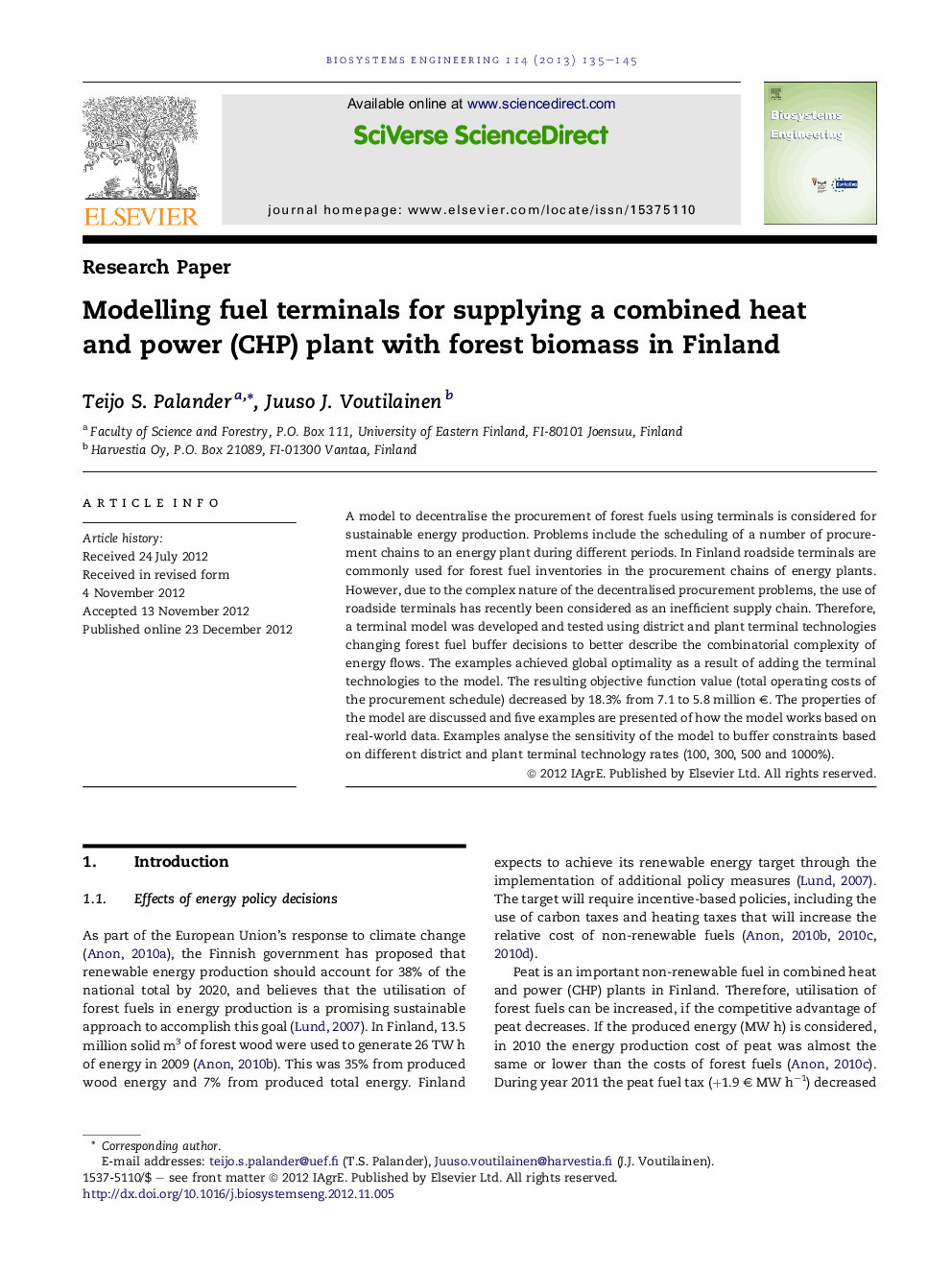| Article ID | Journal | Published Year | Pages | File Type |
|---|---|---|---|---|
| 1711359 | Biosystems Engineering | 2013 | 11 Pages |
A model to decentralise the procurement of forest fuels using terminals is considered for sustainable energy production. Problems include the scheduling of a number of procurement chains to an energy plant during different periods. In Finland roadside terminals are commonly used for forest fuel inventories in the procurement chains of energy plants. However, due to the complex nature of the decentralised procurement problems, the use of roadside terminals has recently been considered as an inefficient supply chain. Therefore, a terminal model was developed and tested using district and plant terminal technologies changing forest fuel buffer decisions to better describe the combinatorial complexity of energy flows. The examples achieved global optimality as a result of adding the terminal technologies to the model. The resulting objective function value (total operating costs of the procurement schedule) decreased by 18.3% from 7.1 to 5.8 million €. The properties of the model are discussed and five examples are presented of how the model works based on real-world data. Examples analyse the sensitivity of the model to buffer constraints based on different district and plant terminal technology rates (100, 300, 500 and 1000%).
► A terminal model was used for decentralised procurement planning of forest fuels. ► District terminals increased a combined heat and power (CHP) plant's total operating costs of forest fuel procurement. ► The plant terminal technology decisions must be made for every plant separately. ► The plant terminal technology had a minor effect on procurement costs. ► The forest fuel mixture was selected by minimising total operating costs.
